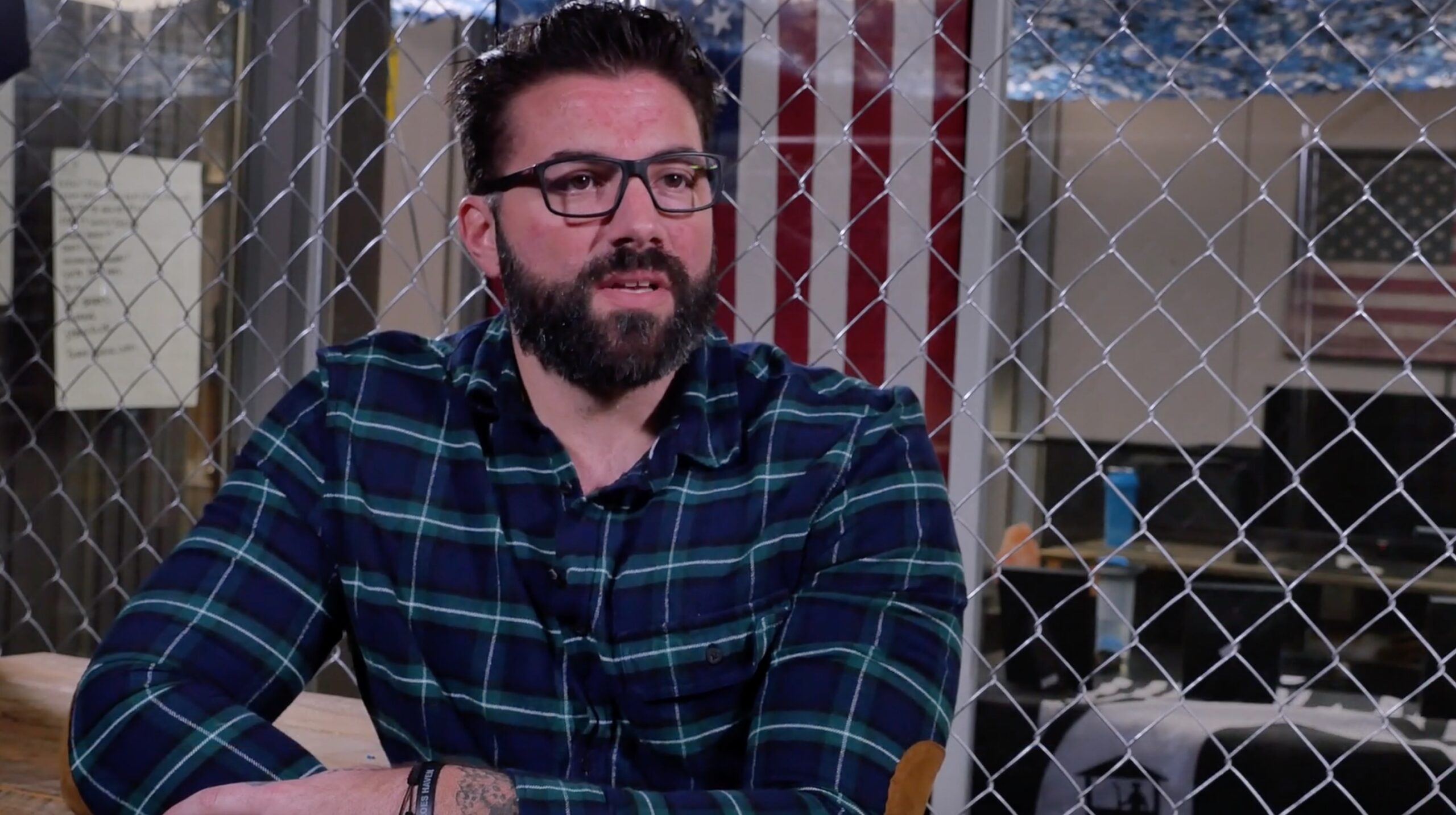The local church can be a source of hope.
So, it was for Kyle Hein of Michigan, a former police officer who was first diagnosed with post-traumatic stress disorder (PTSD) in 2008 and then sustained a traumatic brain injury a year later while trying to arrest a suspect. But that hope came to him in a rather peculiar way – from his church pastor’s vertigo and a “life-altering” visit to the Mind-Eye Institute in Northbrook, Ill.
“I had been in and out of psychiatric facilities, prescribed different pills – nothing seemed to work,” says Kyle, describing his years of efforts to find relief from the symptoms of PTSD and an injured brain.
“Those symptoms not only were affecting me but everyone around me,” recalls Kyle. “I could not sleep. I would become confused, especially when the world around me seemed chaotic, such as hearing my children cry. I would drink before going to bed and had angry outbursts, putting holes through the walls in my house. I remember one time jumping out of my vehicle a couple miles from the house, running home, kicking down the door and then sitting on my bed with no idea how I got there. Just crazy behavior.
“This wasn’t me. I had always been a happy-go-lucky guy,” says Kyle, who also struggled with thoughts of suicide. “All of this was taking a toll on my life and my relationships. Meanwhile, my wife had heard about the Mind-Eye Institute and suggested I contact them, but I was skeptical. I thought nothing they were doing would help me.”
The pastor of Kyle’s church, Rev. Dave Barger of the New Home Missionary Baptist Church in Lansing, Mich., however, proved Kyle wrong.
Rev. Barger had developed such severe vertigo and balance problems he required a walker. He was only able to work a couple hours a day and oftentimes had to preach from a wheelchair. But, during his first appointment at the Mind-Eye Institute – an experience he calls “life-altering,” Rev. Barger found immediate relief simply by having two small strips of tape placed in the bottom outer corners of his eyeglass lenses. He no longer needed the walker. And, later, with the follow-up eyeglasses prescribed him by the Mind-Eye team, his vertigo symptoms were gone – permanently.
“What happened to our pastor was the catalyst for me to contact Dr. Zelinsky,” Kyle recalls.
The “Dr Zelinsky” he references is Deborah Zelinsky OD, an optometrist who serves as executive research director of the Mind-Eye Institute. She is internationally known for her studies and clinical work in retinal stimulation and application of advanced methods for assessing brain function, with emphasis on the often-untested linkage between eye and ears.
Kyle underwent extensive testing at the Mind-Eye Institute, followed by a prescription of therapeutic eyeglasses – “Brainwear™” – that he calls “life-changing.”
“The glasses gave me instant relief. Noises around me sounded differently. My peripheral eyesight started coming back,” Kyle says. “I remember going with my wife to a restaurant in a local food store after getting my [Mind-Eye] glasses, and I just started laughing. People were looking at us. I couldn’t help it; I felt so good.”
“When intact, ‘retinal processing’ enables people to understand and interact appropriately to the world around them. If brain circuitry is out of sync because it has been disrupted – as in Kyle’s case — people can become confused about their surrounding environment and exhibit inappropriate reactions and responses,” Dr. Zelinsky says. “Their bodies are often flooded with stress chemicals, which have many effects, including alteration of peripheral eyesight. Changes in peripheral eyesight affect how they process their environment.”
The term “retinal processing” refers to the brain’s almost-instantaneous ability (partially beneath a conscious level of awareness) to take in external sensory signals (from eyesight, hearing, smell, taste and touch), meld them with a person’s internal sensory signals and then synthesize – process — the information, allowing a person to react and respond to his or her environment.
“This mind-eye connection is unique to each person’s processing system and experiences,” says Dr. Zelinsky. “Neuro-optometric rehabilitation is able to use this concept of mind-eye testing – versus simply eye testing – to prescribe therapeutic eyeglasses, filters, prisms or other optometric appliances on a very individualized basis to stimulate the retina in ways that bring sensory systems into synchronization and alter a patient’s environment.”
After suffering the traumatic brain injury, Kyle struggled to remain on the police force. But his PTSD symptoms, worsened by the brain injury, forced him to leave several years later.
“Until I came to the Mind-Eye, the amount of professional help I received had been minimal. Most of it came as a result of me seeking it out from various people and institutions,” Kyle says.
His experiences prompted him to found MI Heroes Haven – the MI stands for “Michigan” — a nonprofit “community house” in Eaton Rapids, Michigan, that offers programs of support for veterans and first responders with PTSD, youths at risk, and their families. “It’s a creative outlet where our members can feel safe and ‘normal,’” Kyle states. “We offer family counseling, group therapy, team-building and fitness and exercise initiatives.”
On one of his hands, Kyle has tattooed the words, “Never Quit.”
“If you quit, you will never know what you are capable of accomplishing,” Kyle says. “My term of service as a police officer may be over, but I can continue being of service to the community by helping people who struggle as I did.”
As for the Mind-Eye Institute, Kyle says “I am telling people all the time who have symptoms from brain injuries: just check it out.”

Success Stories, Traumatic Brain Injury
Pastor’s Vertigo Gives Hope to Police Officer with PTSD
Kyle Hein, Who Also Suffered Brain Injury, Finds Relief at Mind-Eye
